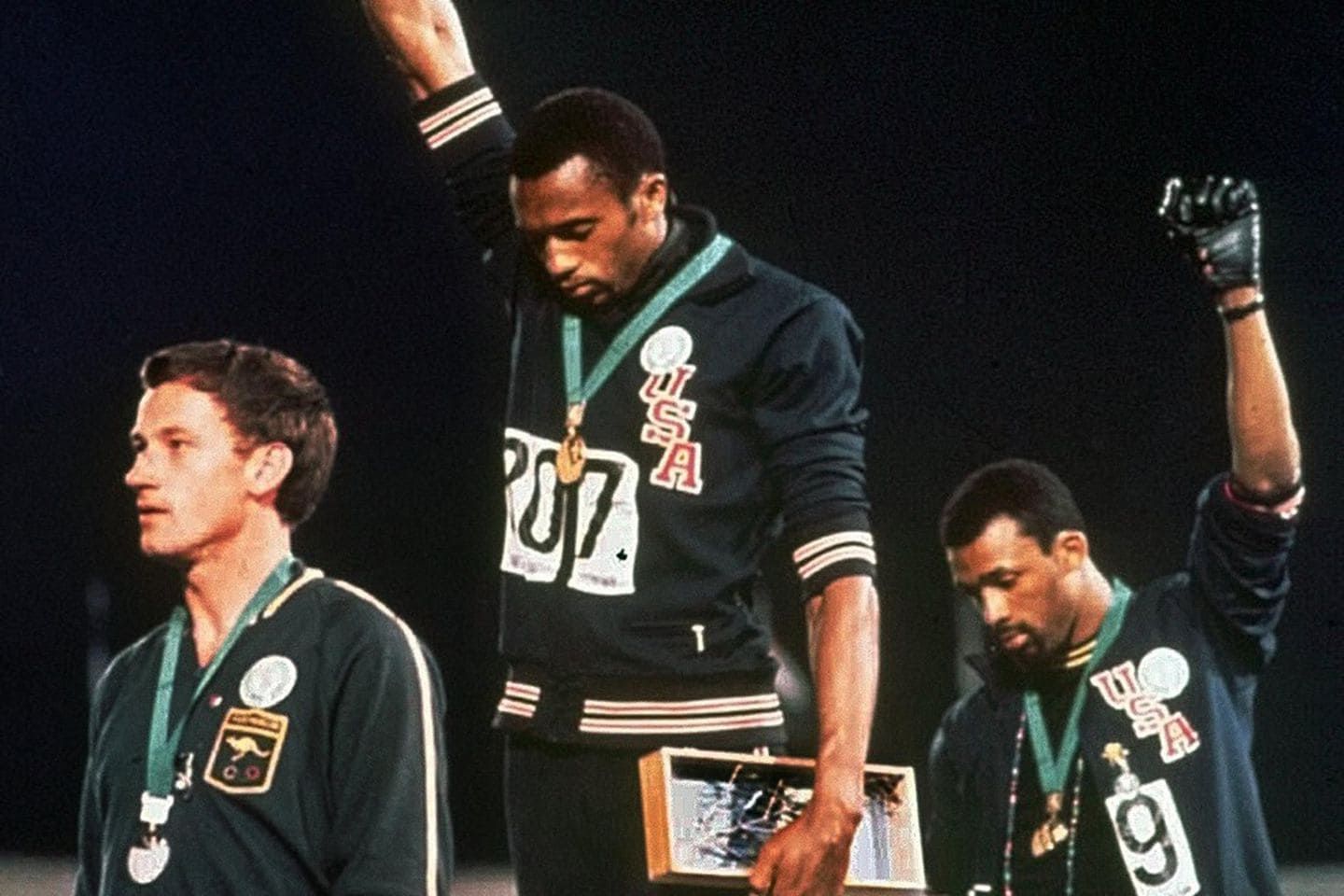"Olympic Order is the Olympic Movement highest award for distinguished contributions to sports. The list is long and includes Avery Brundage and Lord Killianin. John Carlos, Tommie Smith and Peter Norman aren't on (the) list. Avery Brundage was given in 1975. In 1975 Rule 50 established 1616.
"American athletes Vince Matthews and Wayne Collett...Why were they expelled from the Olympic Games? What is the significance of their expulsion?
"In 1968, the IOC (International Olympic Committee) it is claimed declared the black power salute 'immature behaviour'. The USOC (United States Olympic Committee) declared it was against " the Olympic principles". 52 years later...Where are we? This isn't a battle only to be fought by the athletes alone."
Above is a series of tweets posted by T&T Olympic Committee (TTOC) president Brian Lewis, using the Twitter platform over the past few days to highlight the racial discrimination and gender inequality that the sports world continue to face.
"The IOC must confront its history, examine its history, make revision and give an apology," said Lewis, speaking to Guardian Media Sports, yesterday.
"It is important for the IOC to be brave, open and honest in discussing systematic discrimination. John Carlos, Tommie Smith and Peter Norman as well as Vince Matthews and Wayne Collett, the IOC owes them an apology."
Carlos and Smith are former American track and field athletes whose protest at the 1968 Olympic Games in Mexico remains one of the most historic images of sports. Smith and Carlos while on the podium to receive their medals in the men's 200 metres event wearing black gloves raised their fists, signifying black power and liberation. Norman, an Australian, was the third athlete on the podium who wore a badge of the Olympic Project for Human Rights in support of his fellow athletes.
American duo Matthews and Collett are remembered for their protests during the medal ceremony at the 1972 Games in Munich, where they talked to each other while the US anthem was being played.
On the other of the scope is former IOC presidents Brundage, who was infamous for his racism, sexism and ant-Semitism.
In a recent article published in the Sport Intern, Lewis referred to Rule 50 of the Olympic Charter which bans demonstrations and propaganda.
"Rule 50 must be amended," said Lewis.
"Consistent with the United Nations Declaration on Human Rights, free expression during ceremonies, for example, should be allowed.
"It has been claimed that Rule 50 is needed to keep the Olympic Games free of political propaganda. It has also been claimed that demonstrations on the field of play are counter to the Olympic ideals and disrespectful of fellow athletes. I would argue the opposite. If the fundamental principles of Olympism include the educational value of a good example and social responsibility, then surely the iconic image created by John Carlos, Tommie Smith and Peter Norman is a great case of Olympism in action.
"The claim that sport is free of politics, both good and bad, does not stand up. Especially on racial issues. Think of the sporting boycott of apartheid South Africa, for example. For more recent political engagement, think of the laudable efforts regarding North and South Korea. Think of the alignment with the United Nations."
According to Lewis, the IOC is not inflexible citing other changes that the body made over the years including changing the rule that only allowed amateur athletes to compete and also the participation of women at the Games.
"A law, rule or regulation can't remain if it becomes unjust," said Lewis adamantly.
However, he did praise the work done by the IOC in the promotion of gender equality in sports. Earlier this year, the IOC reaffirmed its commitment and priority of gender balance through its "Gender Equality Review Project" which Lewis was a part of the working group.
"The aim of the project is to provide a solutions-based approach to achieving gender equality. The group made 25 recommendations like raise awareness, share practices and take a leadership role in sports to push for gender equality."
Lewis knows the task is not a simple one for the IOC as decisions are made through a process and of course consultations but he wants the head body to take the same approach to racial discrimination saying: "Take the leadership role to push for racial equality and effect real change.
"International sports can't withstand the light shining on their history of racism. Sports reflect society. It is important for the IOC to address the issue and not be on the wrong side of history, said Lewis, who added: "I am the leader of the T&T Olympic Committee and president of the Caribbean Association of National Olympic Committees (CANOC). We, in the Caribbean, are probably the most impacted by slavery so it is my duty, responsibility and obligation to highlight the issues.
"The IOC be must be in front of the curve. Denial is not a strategy. We cannot hope that the murder of George Floyd by the police will dwindle and die down by the 2021 Games."
RACHAEL THOMPSON-KING

